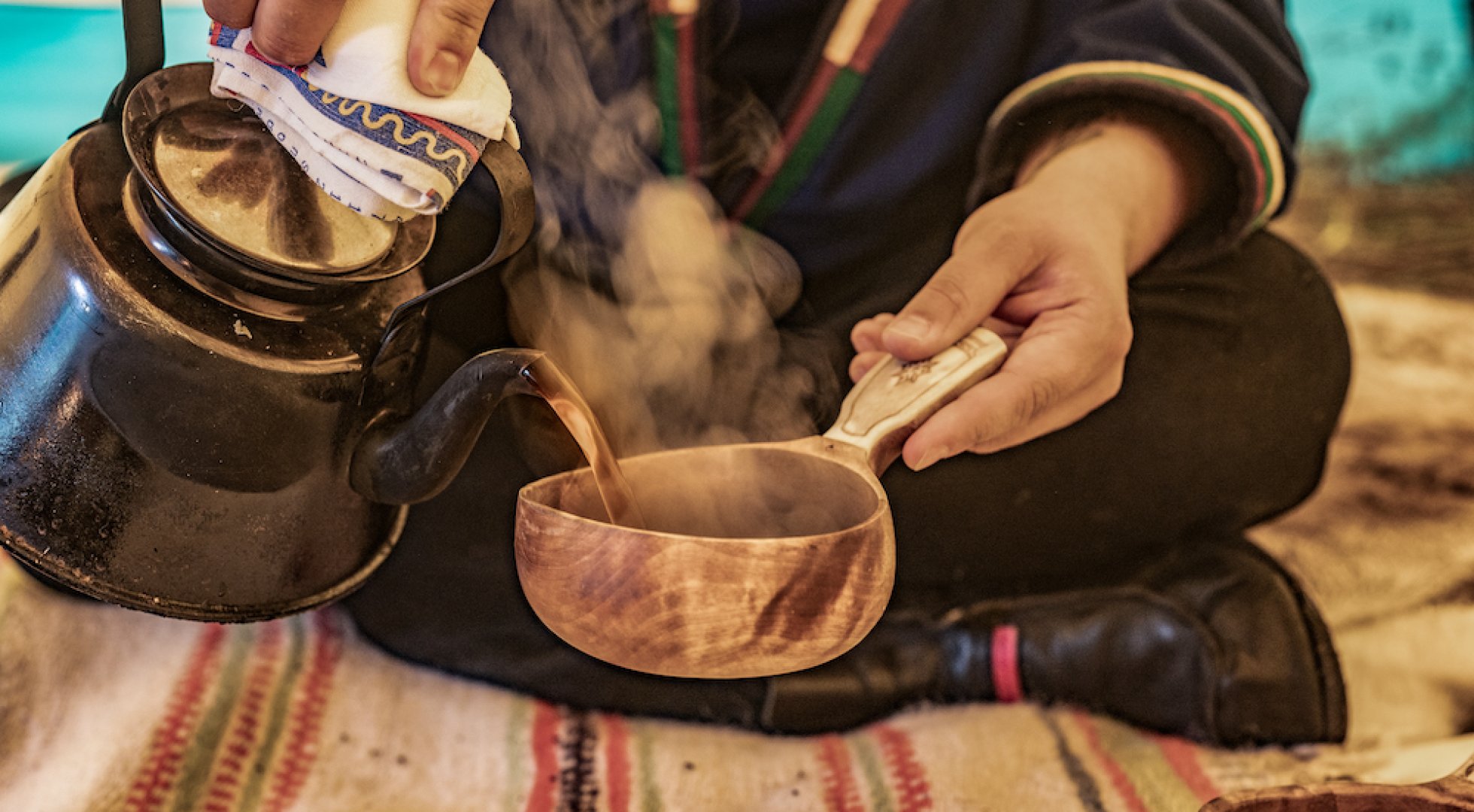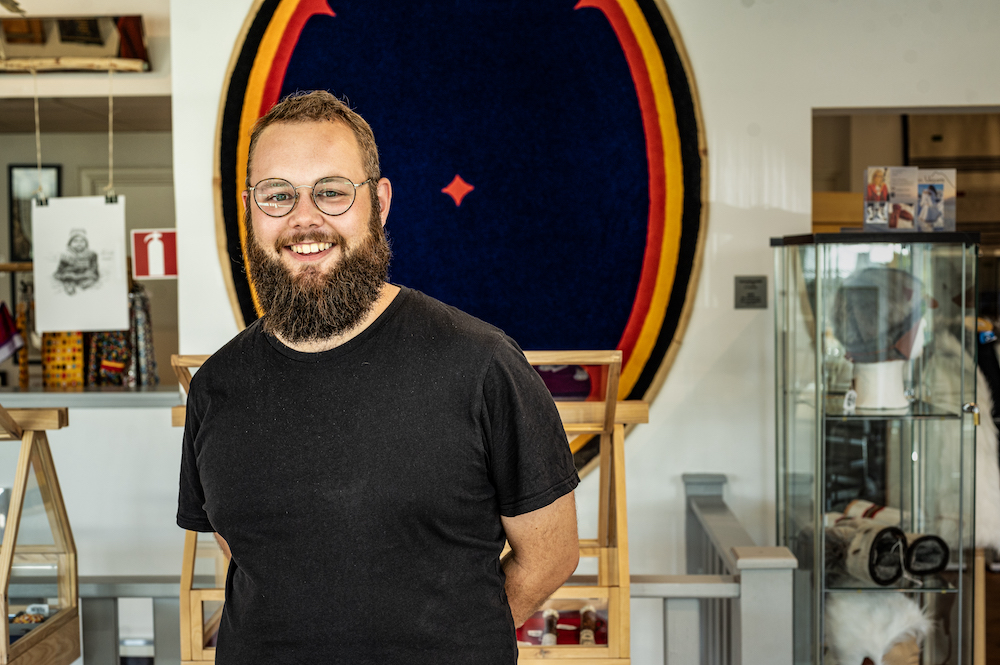
Jokkmokk – cultural tourism all year round
I Jokkmokk many craftsmen and artists gather from the Sámi tradition – the culture bearers of the future. Many people go here in February to experience the winter market, a tradition since the 17th century. But handicrafts and the Sami tradition can be experienced all year round. Something that more and more visitors seem to be taking note of.
The latest guest night statistics from the Swedish Agency for Economic and Regional Growth show that Jokkmokk has increased by 22% so far in 2025, compared to the same period last year. An increase that also reflects a strong summer compared to last year. This is particularly noticeable in the many craft shops around the town, and at the Ájtte Mountain and Sámi Museum, which reports increased visitor numbers.
According to Visit Sweden’s trend report on cultural tourism in Sweden, 65% of international visitors in 2021 stated that the most important thing on vacation is to experience the local authentic culture – an increase of 6 percentage points since 2018. It goes on to say that the search for authenticity often manifests itself in a desire to experience a destination from the perspective of the local people.
“When visitors want to experience a place from the perspective of the local people, it is often also linked to a curiosity and desire to learn more about local cultures and traditions. This is a type of demand that we see increasing and more and more companies in cultural tourism are emerging in our Arctic region”, says Annika Fredriksson, CEO of Swedish Lapland Visitors Board.

One person who has noticed this trend is Leif Öhlund, owner of Jokkmokks Tenn.
“People want to hear the story behind our jewelry and products. Of course, there has always been an interest, but I notice that it has increased even more in recent years”, he says.
And stories do exist. The challenge right now is how best to highlight these stories in the store, on the website, and at the retailers. If time permits, Leif welcomes visitors for a guided tour of the production facility, which is located on the same premises as the shop.
“It is clear that those who take the guided tour and gain insight into the craft are more likely to buy something to take home”, he says.

Not far from Jokkmokk Tenn you will find the premises of the Sámi Duodji Sami handicraft foundation. The foundation works to promote, support and develop duodji, Sami handicrafts. Juhán Niila Stålka works here as a marketing coordinator. Upstairs is a shop where you can buy duodji and Sami design by Sami craftsmen and entrepreneurs. Juhán Niila also experiences a great interest in the products, the craft process and the people behind the works.
He also notices the desire to experience the local authentic culture, not least in his own company Arctic Stories. He invites guests to his lávvu (tent hut) to sit by the fire and enjoy joik and stories. The only marketing he has done during the summer is through posters in town.
“There have been many requests, and many people have contacted me to come that evening. It’s been great fun and no two evenings are the same, I adapt the stories and the joik to what the evening’s guests are interested in. It’s like my own stage where I can test stories and see what works”, he says.

The future of cultural tourism in Jokkmokk
With this increased demand for authentic cultural experiences, Jokkmokk has every opportunity to further consolidate its place as a central destination for cultural experiences in Norrbotten.
Jokkmokk is home to Ájtte, a main museum of Sámi culture in Sweden, as well as a special museum of mountain nature and culture. There are also a large number of craft shops, several national parks that are part of the Laponia World Heritage Site, and a number of entrepreneurs offering authentic natural and cultural experiences to visitors.
The artisans, artists and culture bearers of the area play a crucial role in this development, where their personal stories and engagement create a deeper knowledge and insight and more meaningful experience for visitors.
“The increasing demand of travelers for genuine cultural experiences creates increased opportunities for more cultural entrepreneurs to develop new activities. There are great opportunities for cross-border collaboration between, for example, accommodation facilities and these entrepreneurs. Of course, this applies not only to Jokkmokk but to many places in our Arctic region,” says Annika Fredriksson.





 Svenska
Svenska  English
English 


